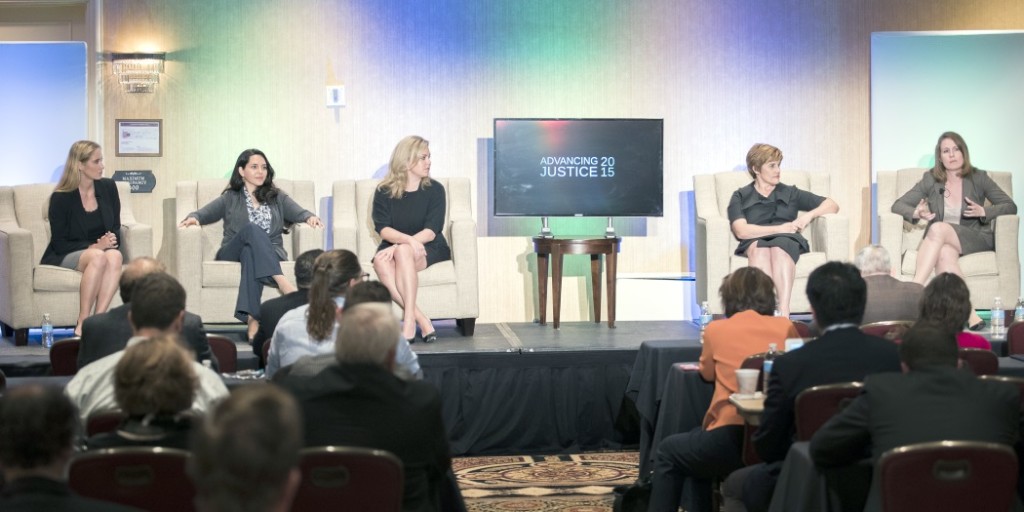A version of the following post originally appeared on the Justice Fellowship website.
It was the most unlikely—and remarkable—of alliances.
An Episcopalian priest sat on a panel with a recovering alcoholic. The progressive-liberal American Civil Liberties Union (ACLU) shared the stage with a Republican strategist. All were passionately advocating for criminal justice reform and action—at both the legislative and grassroots levels.
Right meeting left, left meeting right, and everyone else in between. Men and women from diverse religious, political and ideological convictions came together at a three-day summit in New Orleans to move forward the solutions and actions necessary to make the US criminal justice system, well, more just.
Hosted by the Charles Koch Foundation, over 500 students and professionals descended on “The Big Easy” for the summit, “Advancing Justice: An Agenda for Human Dignity & Public Safety.”
As many testified, while it hasn’t always been easy building those unlikely right-left coalitions, the success has been faith-building.
“You see that a person is justified by what he does and not by faith alone.” – James 2:24
The Charles Koch Institute recognized and invited Justice Fellowship’s own Craig DeRoche and Heather Rice-Minus to speak about how faith and action—when paired together—bring success to the criminal justice system on the inside and outside.
“When you are making a moral or values based decision about taking away somebody’s life, liberty, property; when you are talking about restoring a victim; when you are talking about the effect it has on the community, it is a moral and values based thing. We should be reaching out and looking for a contribution from the faith community,” said executive director DeRoche during a five-person panel discussion—“Justice & Morality: A Faith-Based Approach to Reform”—which included an Episcopalian priest and a businessman from Texas who began a character-based entrepreneur program for prisoners.
“Why do people commit crimes?” DeRoche asked the audience. “People want to simplify it and say ‘It’s because they didn’t have a job or their dad wasn’t nice to them. Or they were going through a divorce or they fought in a war.’ The truth is it’s a moral and values based character decision that people succumb to when they commit the crime.” As such, a character and faith based approach to “corrections” needs to be applied.
As an example of the success faith-based reforms have had within a public-private partnership, DeRoche highlighted Prison Fellowship’s InnerChange Freedom Initiative in Minnesota.
“So there was a study commissioned by the Department of Corrections asking ‘does this really work? Are we wasting taxpayer dollars?’ And rather than take a sample, they actually studied every person that went through that program. Done by the private sector, with private sector money, but in a public sector setting. Every participant over 10 years and it was a .8% recidivism rate. And they compared that to the same crimes, the same population of those 10 years of participants, to Minnesota’s other performance, and that was over 40%. So YES! The answer is it does work. And yes! The answer gets validated time and again.”
Rice-Minus was the sole participant working for a faith-based advocacy organization in a panel discussion entitled “Voices for Reform: Turning Ideas Into Action.” Joining a panel of three other women, each with unique political and ideological viewpoints, Rice-Minus demonstrated how a person’s faith to help the prisoner on the inside is applied on the outside when the grassroots community works to change public policy.
“Our grassroots and our volunteers are stepping up,” said Rice-Minus, Justice Fellowship’s director of government relations. “And we see this with our prison ministry volunteers—those who have been willing to go into prisons, and visit with people, and pray with people, and mentor men and women inside, and reach out to their families. We’ve asked them to take the step of not just looking at that individual person but also trying to see the injustice of the system and make that link to become an advocate.”
Rice-Minus emphasized the importance of supporting those faith-based grassroots advocates and telling their stories.
“[It’s] reaching out to grassroots, building up and equipping volunteers, many of whom have been personally touched by the system and allowing that storytelling to happen. And using the platforms that we have as advocacy organizations to amplify those stories.”
Working together, faith and action will bring the “soul-utions” the criminal justice system needs.
